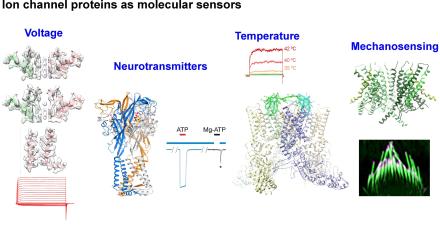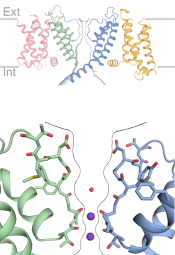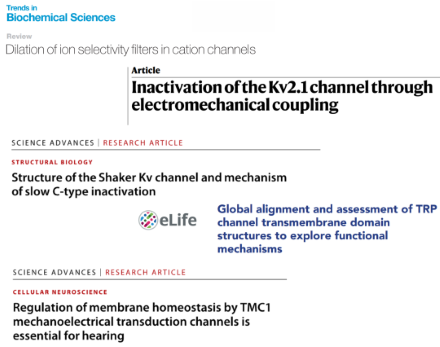Image

The overarching goal of our program is to elucidate how ion channel proteins sense critical biological stimuli, including membrane voltage, temperature, chemical ligands and mechanical forces. Each of these sensing mechanisms are intrinsic to ion channel proteins that play essential roles throughout biology and that are particularly important within the nervous system where their activity underlies every sensation, perception, thought and movement. The laboratory uses biochemical, molecular biological, electrophysiological and structural approaches to investigate the structure and functional mechanisms of voltage-activated ion channels, TRP channels, P2X receptor channels and mechanosensitive ion channels.




